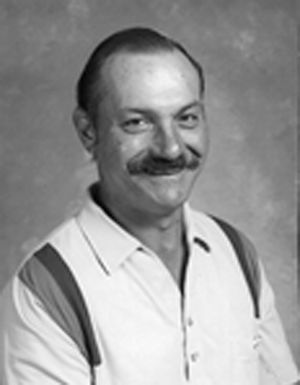Abuse Records Show Milwaukee Archdiocese Reported Some but Not All Allegations to Police
By Dinesh Ramde
While clergy sex abuse victims have long accused the Archdiocese of Milwaukee of failing to report priests' crimes to police, recently released records show that church officials often did go to authorities. Yet few charges were filed, and even fewer priests served jail time when they were convicted. And, in at least three cases, no mention is made of police when a timely report might have allowed justice to be served. The archdiocese released files on 42 priests in July as part of a deal with victims suing it for fraud in federal bankruptcy court. The 6,000 pages of documents provide the first detailed look at when the church reported crimes, the response from police and how cases were resolved. Twenty-eight of the files mention reports to police or a prosecutor; nine do not. In the five remaining cases, either the victim didn't want to involve police or the priest died before the allegations were made. Going to authorities didn't necessarily lead to convictions. Only nine men faced criminal charges, and of the seven who were convicted, just three served time behind bars. The others were sentenced to probation. The biggest impediment to criminal charges was the statute of limitations. Before 1989, sexual assault victims had to report the crime within six years — even if they were very young children. The law has since been changed so there's now no statute of limitations for first-degree sexual assault. Second-degree sexual assault of a child charges can be filed until the victim is 45. A similar change earlier on would have allowed charges against as many as 13 more priests in Milwaukee. The statute of limitations also may be why no reports were made in some cases. The nine files in which police are not mentioned include several in which victims reported abuse that had happened decades earlier. Three files, however, indicate that victims came to the archdiocese before the statute of limitations expired and yet no one went to the police. For example, then-priest Ronald Bandle admitted in 1992 that he engaged in "inappropriate behavior" with a 12-year-old six years earlier, but there's no indication that the archdiocese reported him to authorities. Archdiocese spokesman Jerry Topczewski said most victims came forward as adults, and the archdiocese's concern then was to offer therapy, counseling and pastoral outreach. "If they were adults, we didn't report their cases on their behalf," Topczewski said. "We always felt that if an adult wanted to report it, they could do it themselves. And if they wanted their privacy, we should respect that." Children and their parents did report abuse to church officials, however. Rembert Weakland, the archbishop from 1977 to 2002, acknowledged in a 2011 deposition that while the archdiocese occasionally involved police in those cases, it could have done more. Weakland acknowledged that when police were notified in the 1980s, it was usually by victims or their families, not archdiocese staff. He declined to comment further when contacted for this report. The archdiocese usually took its own disciplinary action. Weakland said in his deposition that it was hard to dismiss priests from the priesthood then, so officials monitored their behavior and tried to enforce restrictions on their ministry. But the archdiocese's monitoring program had flaws. In at least one case, a priest assigned as a monitor was himself later accused of sexual abuse and removed from ministry. After the national clergy abuse scandal erupted in 2002, the archdiocese adopted a policy of reporting all allegations to police, even in cases where priests had died, Topczewski said. Weakland resigned around the same time, and records show that under New York Cardinal Timothy Dolan, Weakland's successor in Milwaukee, the archdiocese generally did so. Dolan will give an annual, unrelated lecture Thursday in Milwaukee. The records show that in the rare cases in which priests were convicted, they often got light sentences. One got 10 years in prison, but another served only 45 days in jail and the others mostly got probation. Peter Isely, a longtime activist who now serves as the Midwest director for the Survivors Network of those Abused by Priests, found no consolation in the cases where reports were made. "It's easy to report things 25 years later after the statute of limitations has passed," he said. "But when you have reasonable suspicions and you don't report them, what's happening there?" Isely also said there's nowhere near the number of police reports in the records as there are victims, noting that one priest alone was accused of molesting some 200 boys. The cache of documents released by archdiocese represents an incomplete collection, including only those the archdiocese and plaintiffs' attorneys have been able to agree upon thus far. Other documents remain under a court seal, and plaintiffs' attorneys are pushing to have them released. Topczewski said hindsight makes it easy to second-guess decisions from decades ago. He said the archdiocese is committed to helping victims heal.
|
.
Any original material on these pages is copyright © BishopAccountability.org 2004. Reproduce freely with attribution.
